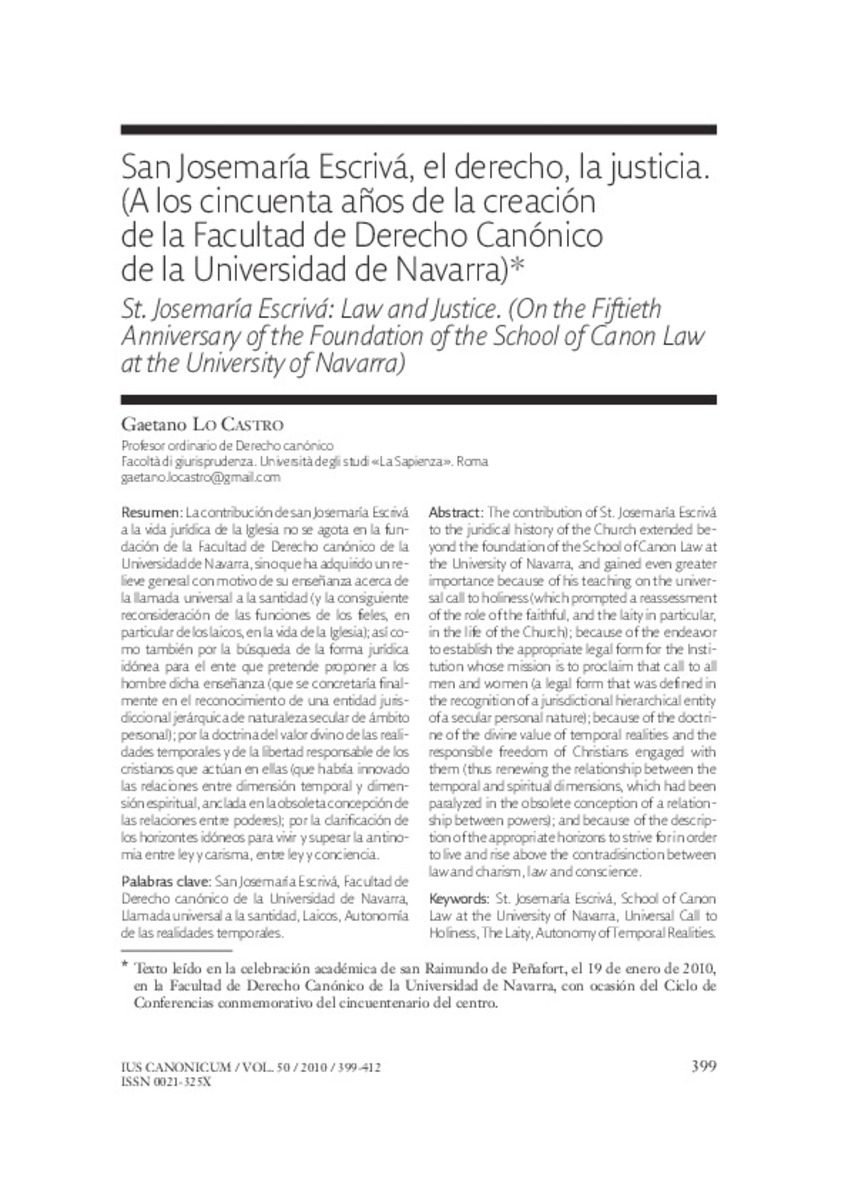San Josemaría Escrivá, el derecho, la justicia. (A los cincuenta años de la creación de la Facultad de Derecho Canónico de la Universidad de Navarra)
Other Titles:
St. Josemaría Escrivá: Law and Justice. (On the Fiftieth Anniversary of the Foundation of the School of Canon Law at the University of Navarra)
Keywords:
San Josemaría Escrivá de Balaguer
Facultad de Derecho canónico de la Universidad de Navarra
Llamada universal a la santidad
Laicos
Autonomía de las realidades temporales
School of Canon Law at the University of Navarra
Universal Call to Holiness
The Laity
Autonomy of Temporal Realities
Publisher:
Instituto Martín de Azpilcueta
Citation:
IUS CANONICUM, 2010, 50, N. 100, págs. 399-412.
Statistics and impact
0 citas en

0 citas en

Items in Dadun are protected by copyright, with all rights reserved, unless otherwise indicated.







